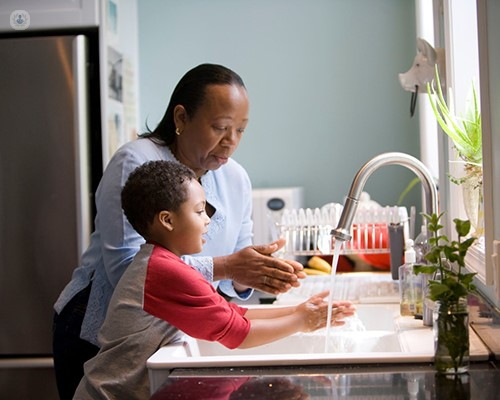FAQs on coronavirus (COVID-19)
Autore:It’s difficult not to be bombarded with information about the coronavirus (COVID-19) breakout wherever you turn and to know whether these sources are reliable or not. We were fortunate enough to ask Dr Anne Mier, one of London’s leading doctors in respiratory and general medicine about the symptoms of coronavirus, who is most likely at risk and the sensible steps that you should follow to minimise chances of catching the virus.

What is a coronavirus?
Coronaviruses (CoV) are a group of viruses that can cause illnesses ranging from a common cold to a more severe disease such as Middle East Respiratory Syndrome (MERS-CoV) and Severe Acute Respiratory Syndrome (SARS-CoV).
A novel coronavirus (nCoV) such as COVID-19 is a new strain that has not previously been seen in humans. Coronaviruses are zoonotic, i.e. they are transmitted between animals and people. It has been shown that SARS-CoV was transmitted from civet cats to humans and MERS-CoV from camels to humans.
What makes a coronavirus more dangerous than the flu?
COVID-19 has been classified as an airborne high consequence infectious disease (HCID) and so differs from flu.
People may be infectious without actually having symptoms themselves which makes it more dangerous than flu and easier for the illness to spread in the community.
HCIDs typically have a higher fatality rate, may not have effective treatment and are often difficult to recognise and detect rapidly.
What are the main symptoms of COVID-19?
Initial symptoms, which typically come on about four days after contact with the virus, may include:
- a sore throat
- a fever
- dry cough
- muscle pains
After two to three days, shortness of breath and breathing difficulties can develop.
In more severe cases the infection can cause:
- pneumonia
- severe acute respiratory syndrome
- kidney failure
- death
Who is most at risk of becoming severely ill with COVID-19?
People who are frail, those over the age of 60 and people who are immunosuppressed. Up to now, children below the age of 10 appear to be at lower risk.
What are the most sensible steps to take to avoid catching coronavirus?
Airborne HCIDs are spread by respiratory droplets or aerosol transmission, in addition to contact with an infected patient, infected fluids, tissues and other contaminated materials.
It is highly advisable to avoid close contact - less than 2 metres - with anyone showing symptoms of respiratory illness such as coughing and sneezing.
Standard recommendations to prevent spread of infection include:
- No touching of the face, nose and eyes if your hands could be contaminated.
- Regular hand washing, using soap and water or using alcohol hand sanitiser if washing is not possible.
- People with symptoms should cover the mouth and nose when coughing and sneezing and use disposable tissues.
If you are worried that you are showing signs of coronavirus, please contact the NHS 111 line for further advice. To stay up-to-date on what’s happening, we recommend that you refer to the UK government’s website for reliable information.
Dr Mier specialises in treating asthma, allergies, chest infection and cough. You can book an appointment to see her via her Top Doctor’s profile.


